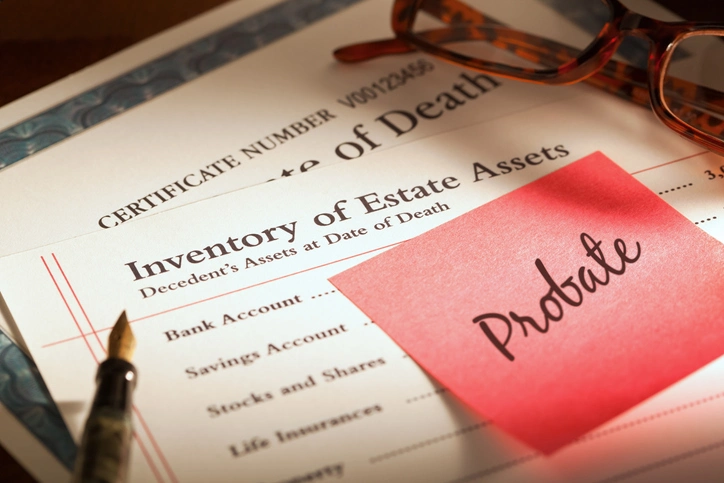Handling probate in Texas can feel overwhelming, especially when creating an itemized inventory of assets. This step is crucial as it ensures all estate property is properly accounted for, valued, and distributed according to Texas probate laws. If you’re an executor or administrator, knowing how to make an itemized inventory for probate in Texas will help you manage the estate efficiently and avoid legal complications.
This guide will walk you through the process, highlighting key documents, required information, and best practices to ensure accuracy. Understanding these steps will make the probate process more manageable and prevent unnecessary delays.

What Is an Itemized Inventory in Texas Probate?
An itemized inventory is a detailed list of all assets owned by the deceased at the time of death. The probate court requires this document to establish a clear financial picture of the estate. It ensures that all assets are accounted for and distributed properly according to Texas probate laws. This inventory helps ensure creditors receive payment, heirs obtain their rightful inheritances, and all legal obligations are met.
The inventory includes:
- Real estate holdings – Homes, rental properties, land, and commercial properties owned solely or jointly.
- Bank accounts and financial assets – Checking accounts, savings accounts, investments, and retirement funds.
- Personal property, including vehicles and valuables – Cars, jewelry, collectibles, electronics, and household items.
- Debts and liabilities – Outstanding mortgages, credit card debt, medical bills, and any loans owed by the deceased.
- Business interests and investments – Stocks, bonds, partnerships, or business ownership stakes.
Without a properly prepared inventory, probate proceedings may face delays, disputes, or even rejection by the court. A well-organized and accurate inventory simplifies the probate process for the executor and beneficiaries. Texas law requires timely submission of this document, so staying organized is crucial.

Why an Itemized Inventory Is Important in Texas Probate
Creating an itemized inventory involves more than just paperwork it plays a crucial role in probate proceedings. The document serves as a legal record that ensures fair and proper distribution of assets. Below are the key reasons why an inventory is essential:
1. Ensures Accurate Distribution of Assets
Listing everything owned by the deceased prevents disputes among heirs and guarantees that each beneficiary receives what they are entitled to under the law or the will’s instructions. A well-documented inventory reduces confusion and prevents legal challenges between family members.
2. Protects the Executor from Liability
Executors must act in the estate’s best interest. If they mismanage assets or fail to include them, they may be held personally liable. A comprehensive inventory protects the executor by providing a clear record of all assets. Keeping detailed records also safeguards the executor against accusations of favoritism or mismanagement.
3. Satisfies Court and Creditor Requirements
Texas probate courts require an official inventory to ensure that debts are settled before distributing inheritances. Creditors use this document to file claims against the estate. If they are not properly notified, they may challenge the probate process later, causing unnecessary delays.
4. Helps Determine Estate Taxes
If an estate is large enough to be subject to estate taxes, an itemized inventory is necessary for an accurate valuation. Proper documentation ensures compliance with tax laws and helps avoid penalties. A well-prepared inventory also ensures fair distribution to beneficiaries, preventing unnecessary tax burdens.
Steps to Make an Itemized Inventory for Probate in Texas
A structured approach is essential to creating an accurate probate inventory. Below are the key steps to complete an itemized inventory for probate in Texas.
1. Gather Important Documents
Before listing assets, collect all relevant documents to ensure nothing is overlooked. Proper documentation streamlines the probate process and prevents unnecessary delays. Essential records include:
- The deceased’s will (if applicable)
- Bank statements and financial records
- Property deeds and mortgage documents
- Vehicle titles and registration papers
- Insurance policies and annuities
- Stock and investment account statements
- Debt and loan statements
Having these documents readily available simplifies asset identification. Executors should also check online accounts, storage units, and safe deposit boxes to ensure that all assets are accounted for.
2. Identify and Categorize All Assets
To create a complete inventory, separate assets into different categories. This organization provides clarity to the probate court and beneficiaries.
- Primary residence
- Rental properties
- Land and undeveloped lots
- Commercial buildings
- Vacation homes
Financial Accounts
- Checking and savings accounts
- Certificates of deposit (CDs)
- Money market accounts
- Retirement funds (IRA, 401k, pension)
- Stocks, bonds, and mutual funds
Personal Property
- Jewelry and collectibles
- Vehicles, boats, and recreational vehicles
- Art and antiques
- Furniture and household items
- Firearms and valuables
Business Interests
- Sole proprietorships
- Partnerships and LLCs
- Corporate shares and stockholdings
Debts and Liabilities
- Outstanding loans and credit card balances
- Medical bills and final expenses
- Unpaid taxes
- Mortgage obligations
Carefully listing all assets and liabilities ensures that nothing is overlooked, keeping probate proceedings fair and transparent.
3. Assign a Fair Market Value to Each Asset
The probate court requires accurate valuations for estate assets. While some values (such as bank accounts) are readily available, others require professional appraisal.
- Real Estate: Hire a real estate appraiser or use recent property tax assessments.
- Vehicles: Use Kelley Blue Book or similar valuation guides.
- Jewelry and Collectibles: Obtain an appraisal from a certified expert.
- Business Interests: Consult a business valuation specialist.
Proper valuation helps determine estate taxes, ensures fair distribution, and prevents disputes among heirs. Executors should maintain records of valuation reports for future reference.
4. Complete the Official Inventory Form
Texas probate courts provide an Inventory, Appraisement, and List of Claims form, which must include:
- Asset descriptions and valuations
- Ownership details (joint or sole ownership)
- Debts and outstanding liabilities
- Supporting documentation (appraisals, statements, tax assessments)
Completing this form correctly is essential for probate approval. Any missing or incorrect information can delay the process or lead to legal complications.
5. File the Inventory with the Probate Court
After completing the inventory, submit it to the probate court handling the estate. Texas law requires executors to file this document within 90 days of their appointment unless the court grants an extension.
The court reviews the submission to ensure all assets are accounted for. If discrepancies arise, additional documentation may be required. Executors should keep copies of all filings and maintain open communication with the court.
Common Mistakes to Avoid When Preparing an Inventory
Even small errors in an inventory can cause legal challenges, making it essential for executors to be meticulous. A single oversight can lead to disputes, delays, or legal penalties. Executors must be thorough to avoid complications and ensure probate runs smoothly. Here are common mistakes to watch for:
1. Failing to Include All Assets
Overlooking assets—such as digital accounts, safe deposit boxes, or personal valuables—can delay probate and create disputes among beneficiaries. Executors should conduct a thorough search of all possible assets, including online financial accounts and cryptocurrency holdings. Ensuring a comprehensive inventory prevents conflicts and helps with proper estate distribution.
2. Incorrect Valuations
Providing inaccurate values can lead to tax penalties, inheritance disputes, or probate rejection, complicating the entire process. Hiring professional appraisers for valuable assets, such as jewelry, real estate, and business interests, ensures accurate reporting. A precise valuation prevents future legal or financial issues for heirs and beneficiaries.
3. Not Accounting for Debts
Executors often focus solely on assets, forgetting that debts must also be listed, which can create challenges in settling the estate. Failing to account for outstanding loans, credit card balances, or unpaid medical bills can delay probate proceedings. Accurately reporting debts ensures creditors are paid, allowing a smooth transition for heirs receiving the remaining assets.
4. Missing the Filing Deadline
Texas probate courts require inventory submission within 90 days of the executor’s appointment, making timely preparation essential. Failing to meet this deadline can lead to penalties, court interventions, or removal as executor. Staying organized and working with legal professionals can help ensure that filings are completed on time, avoiding unnecessary delays.
5. Not Seeking Professional Help
Texas probate laws are complex, and executors unfamiliar with them may make costly errors. Consulting a probate attorney ensures accuracy, compliance, and a smoother process while minimizing risks. Legal guidance helps avoid common mistakes, reduces executor liability, and speeds up estate administration, making probate easier for all involved.

Final Thoughts: Ensuring a Smooth Probate Process in Texas
Creating an itemized inventory for probate in Texas is a crucial responsibility for executors, requiring attention to detail and thorough documentation. By following proper steps, gathering essential documents, and accurately valuing assets, the probate process becomes more efficient and legally compliant. Staying organized and proactive reduces the likelihood of disputes or legal obstacles.
Understanding how to make an itemized inventory for probate in Texas helps executors fulfill their duties responsibly while ensuring a fair distribution of assets. Keeping accurate records, meeting deadlines, and seeking professional assistance can significantly ease the probate process. If you’re handling a loved one’s estate, consulting a Texas probate attorney can prevent complications and help ensure probate proceedings go as smoothly as possible. Taking the right approach early on will save time, minimize stress, and protect the estate from unnecessary legal challenges.








